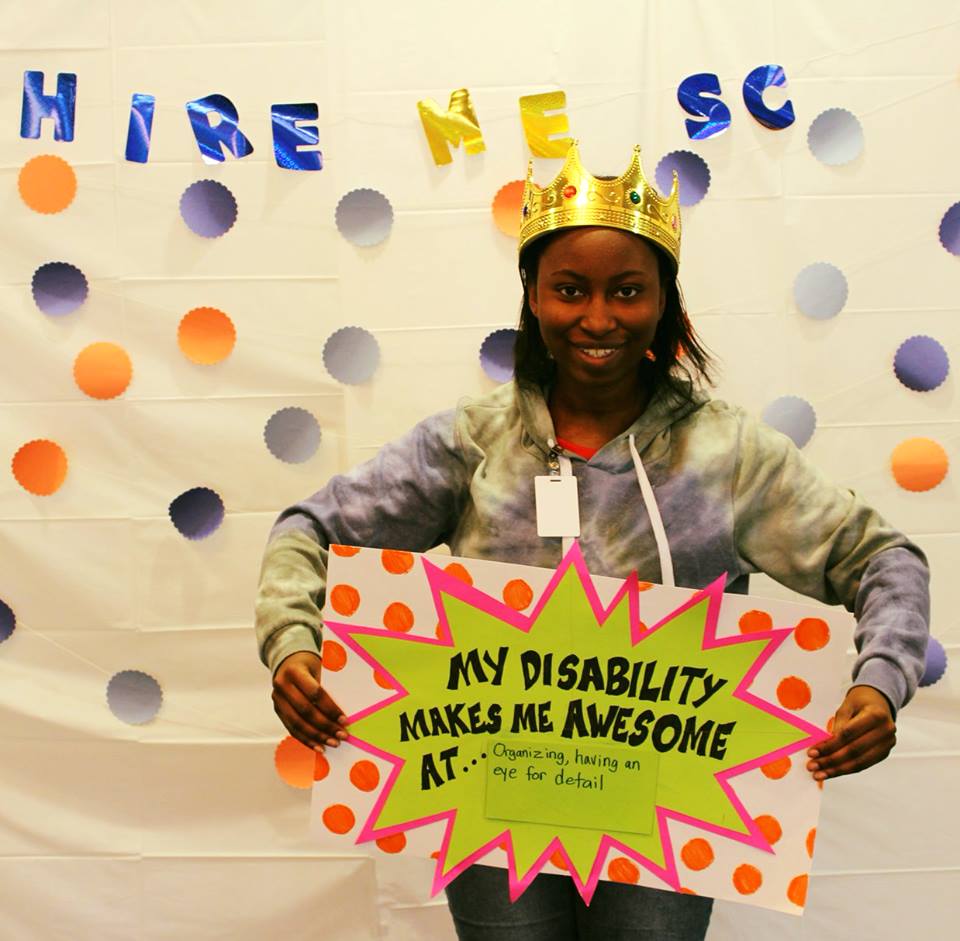Able South Carolina is a Center for Independent Living (CIL) that has taken a leading role in promoting successful employment outcomes for the state’s youth with disabilities. Reflecting the independent living principle of “nothing about us without us,” 80% of Able SC’s staff are people with disabilities. Their efforts highlight the importance of building broad coalitions and letting people with disabilities lead the way.
In 2016, Able SC became the first Center for Independent Living awarded a Partnerships in Employment (PIE) Systems Change Grant. These five-year grants fund various state agencies and organizations to form consortiums that improve employment outcomes, expand competitive employment in integrated settings, and improve statewide system policies and practices for youth and young adults with intellectual and developmental disabilities. Since 2011, ACL’s Administration on Intellectual and Developmental Disabilities has funded PIE grants for 14 state projects.
Able SC applied for the PIE grant as the lead for the South Carolina Disability Employment Coalition, a cross-disability group working to address employment barriers for people with disabilities of all ages. The coalition was the result a conversation between Able SC Executive Director Kimberly Tissot and South Carolina’s governor at the time, Nikki Haley, and a subsequent meeting with the state’s Department of Employment and Workforce Development. It received early funding from the state’s Developmental Disabilities Council.
The coalition’s early partners included South Carolina’s:
- Vocational Rehabilitation Department
- Department of Disabilities and Special Needs
- Developmental Disabilities Council
- Protection and Advocacy for People with Disabilities Inc.
- Department of Education
- Commission for the Blind
The PIE grant has helped solidify this partnership and bring in new partners including the state’s Medicaid agency and the Center for Disability Resources (a part of the national network of University Centers for Excellence in Developmental Disabilities). Today, the coalition has more than 35 member agencies and organizations. The coalition has also had success engaging American Job Centers in South Carolina.
In addition to strengthening partnerships, the Coalition has launched a pilot program working with 50 students with intellectual and developmental disabilities in two high schools. According to Sandy Jordan, Director of Employment Programs at Able SC, the program seeks to give students the same opportunities to get work experience during high school as many of their peers. Jordan says the Coalition is also “working with local service providers, to assist students on a non-diploma track who wouldn’t typically be able to receive those services,”
The Coalition and Able SC are also working to educate employers. In October they hosted an employer summit on hiring people with disabilities (view photos from the event).
“We are helping them modify some of their policies and procedures and accommodations,” Able SC Assistant Director Jerri Davison said. As a state affiliate of the NIDILRR-funded Southeast ADA Center, they are in a unique position to help employers understand provisions of the Americans with Disabilities Act.

Another exciting project that reflects how, as Jordan puts it, “people with disabilities are right at the heart of the grant,” is the #HireMeSC social media campaign. The campaign features posts and pictures from young adults about their work experiences and why employers should hire them.
The Coalition also accomplished their long-time goal of creating a state Association of People Supporting Employment First Chapter to increase training opportunities for employment professionals. The momentum to support integrated employment has extended to the state’s legislature where an Employment First bill has been introduced. The bill would advance policies that prioritize community employment over sheltered workshops.
Able SC’s work with the coalition and PIE grant has allowed them to establish a stronger relationship with state agencies. They are excited by the welcoming reception they have received by state agencies and partners.
“Folks are coming to us seeking advice on disability related matters,” Davison notes.
Able SC’s work with youth in transition continues to grow. According to Jordan, they are currently working with project partners to collect better data, “so we can see how we are doing and how we are making progress.”
Read more from ACL’s Profiles in Integrated Employment Blog Series.

